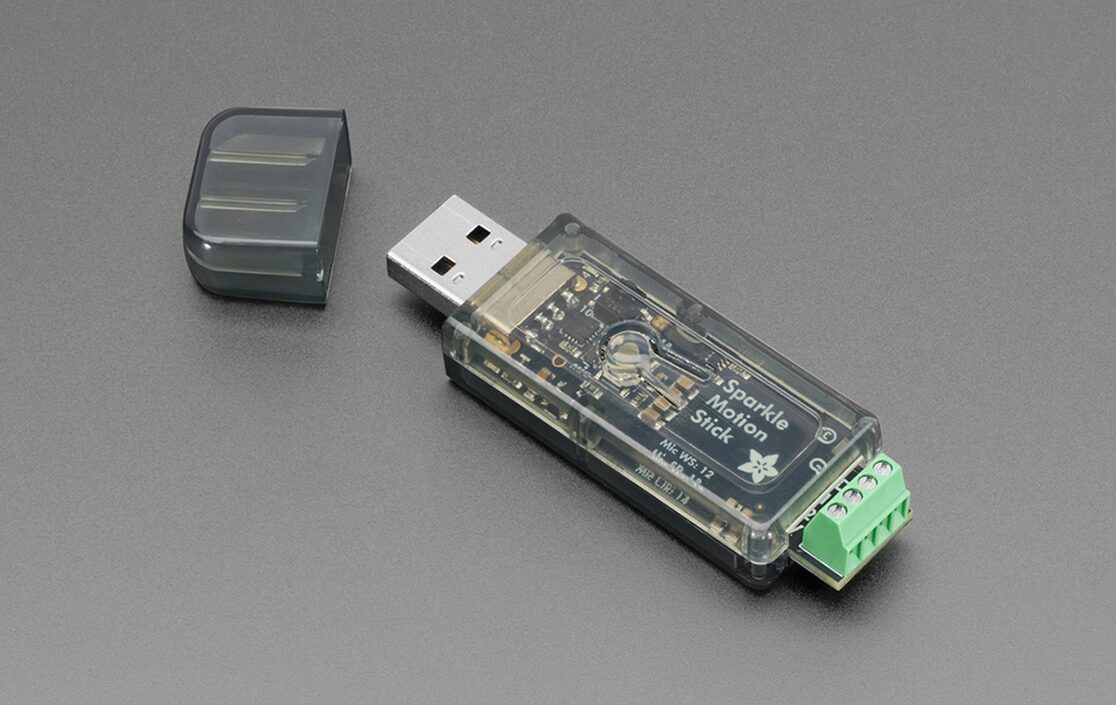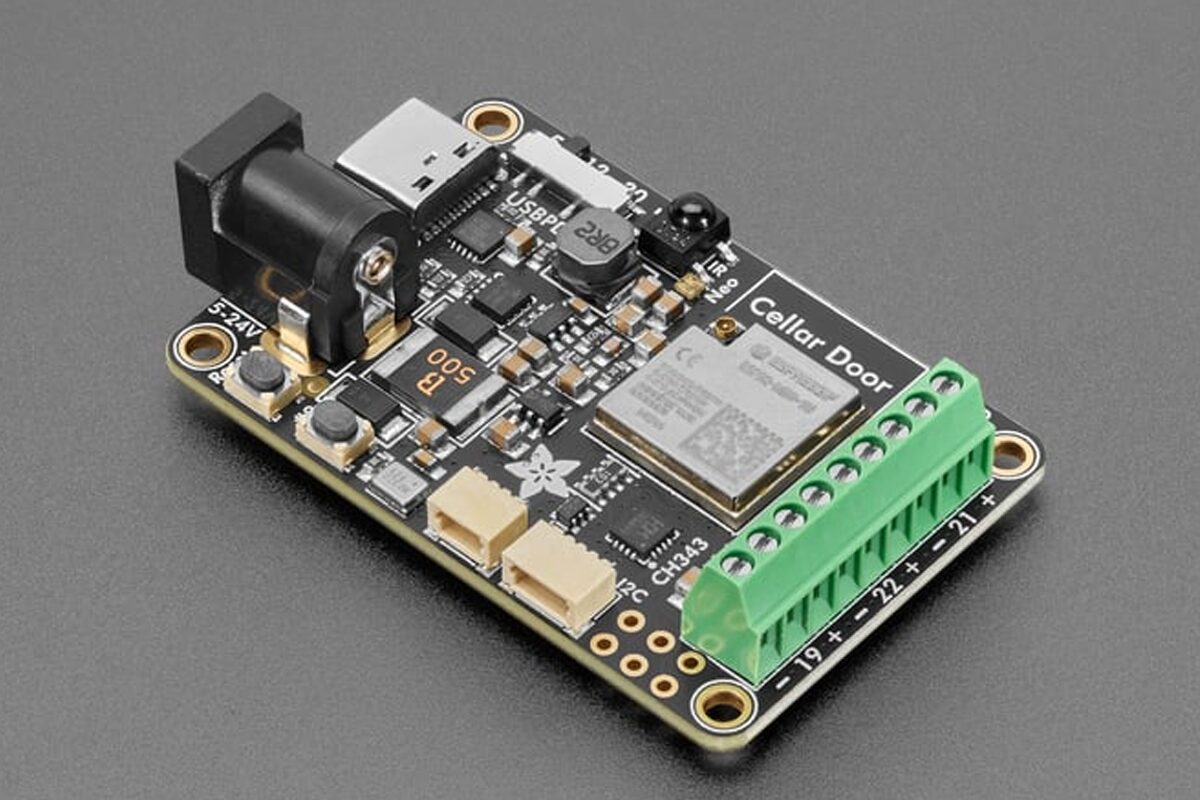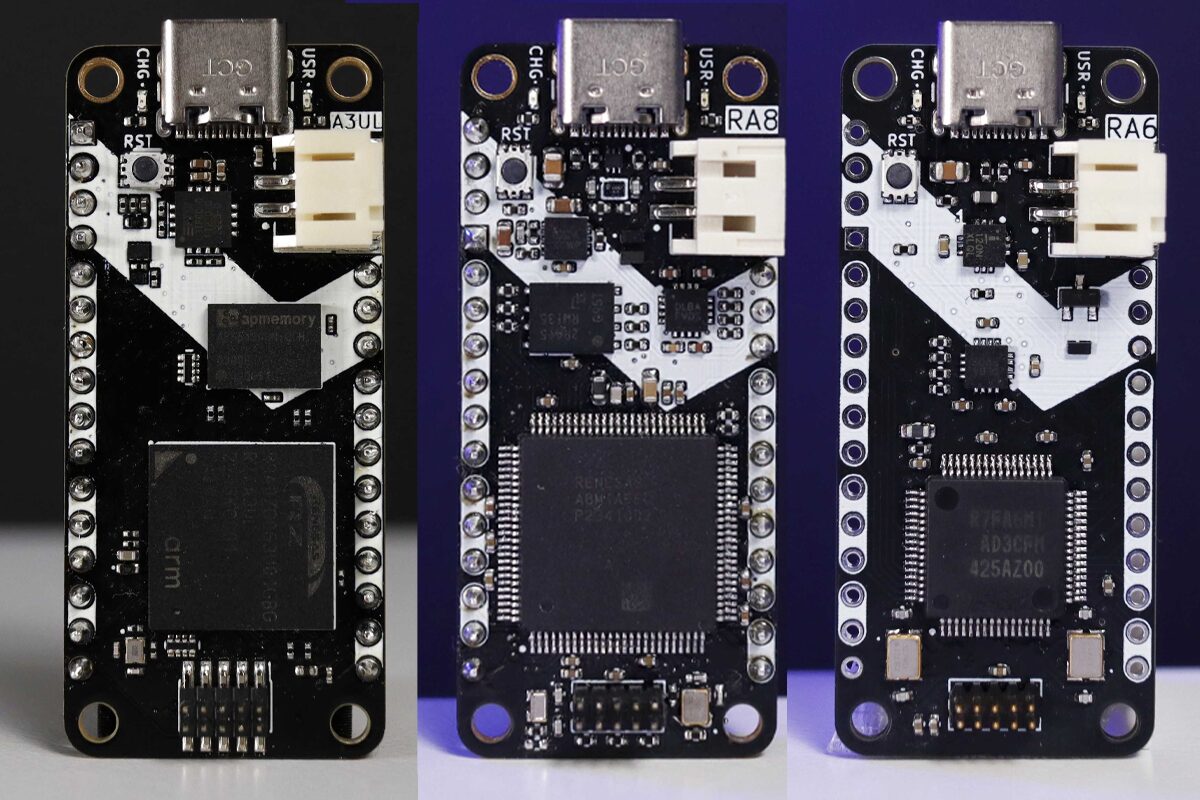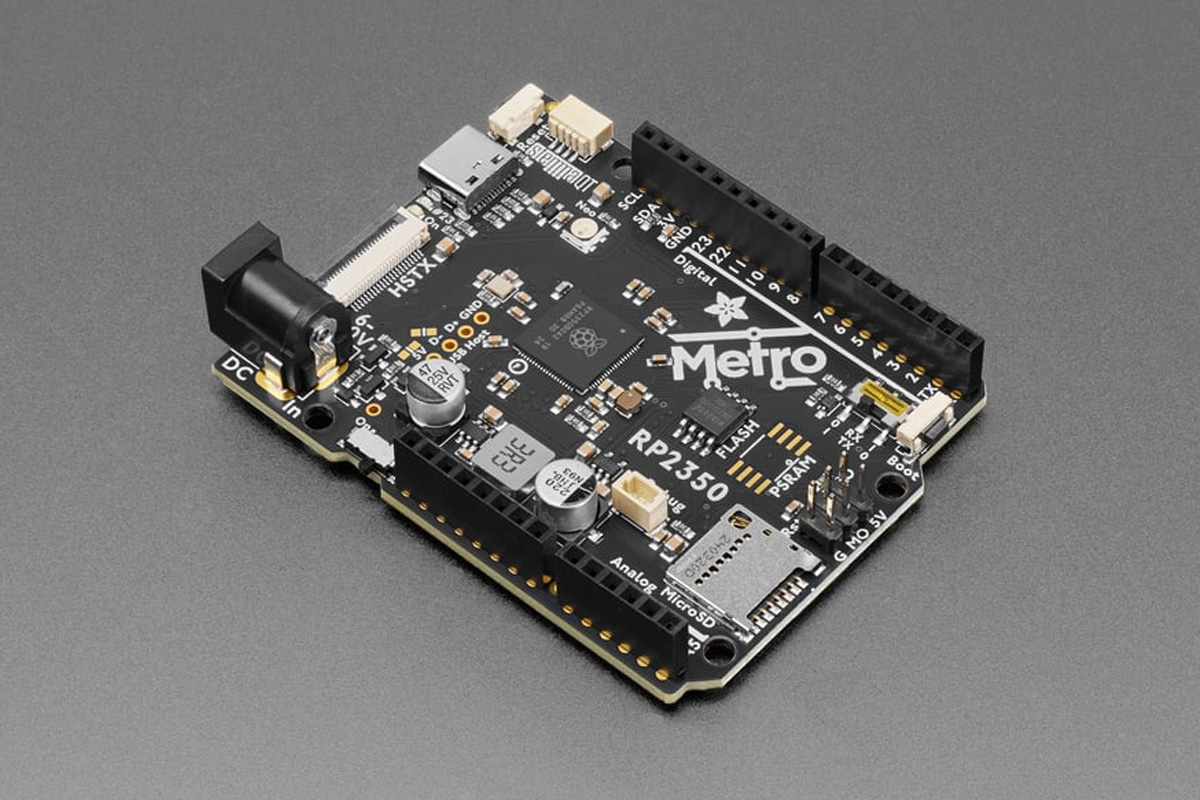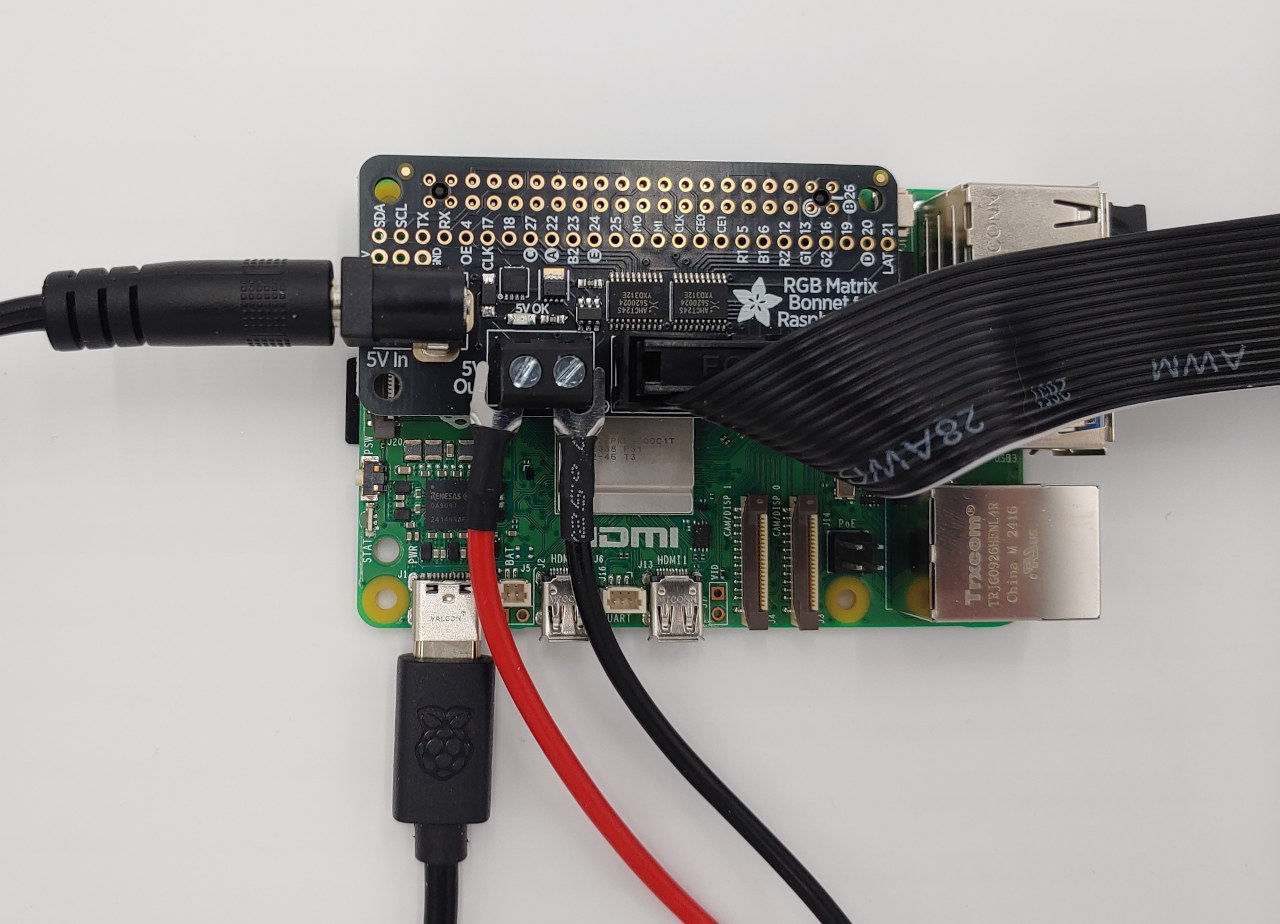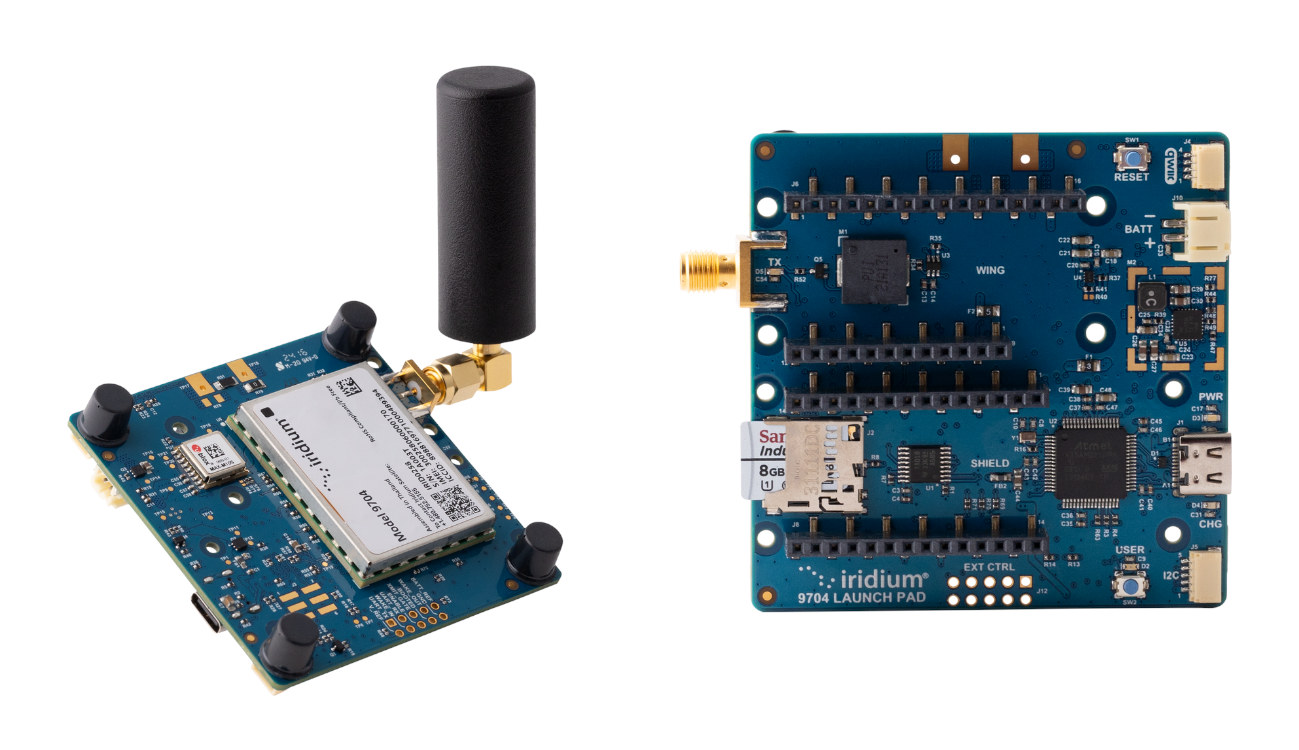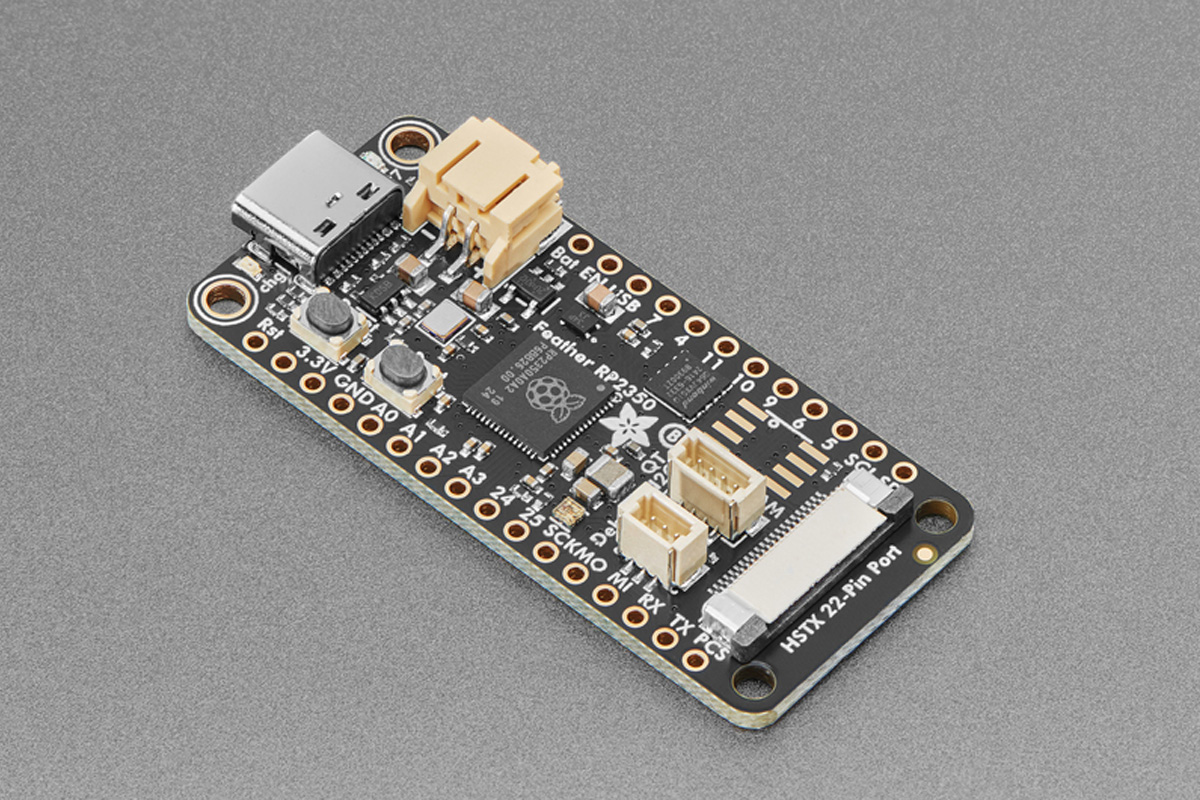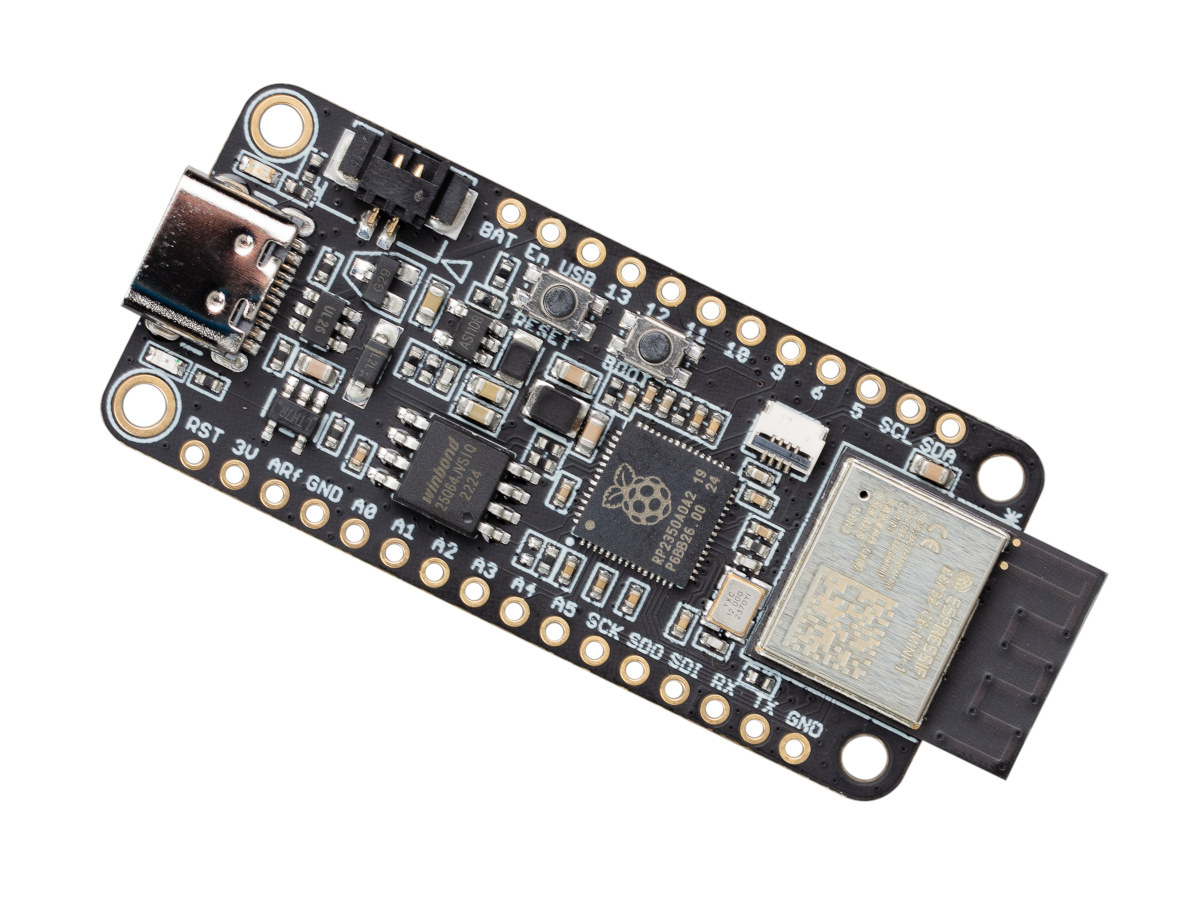Adafruit has recently released the Adafruit Sparkle Motion Stick, a compact, WLED-friendly Neopixel USB controller board built around an ESP32-S3 Module designed for audio-reactive LED projects, cosplay props, holiday lighting, and more. The module comes with a USB Type-A port for programming and power input (5V, 2A max), and a simple enclosure for protection (not weatherproof). It includes a built-in I2S microphone for audio-reactive effects, an IR receiver for remote control. Other than that it has a user-programmable button, an onboard NeoPixel LED, and a red status LED with two 5V-level shifted signal outputs with power and to connect the LEDs a screw terminal blocks. Adafruit Sparkle Motion Stick specifications SoC – ESP32-S3 dual-core Xtensa LX7 MCU @ 240MHz with 2.4GHz Wi-Fi and BLE 5 LED Control – 2x level-shifted output channels (5V logic) with terminal blocks (26–20AWG support) Audio Input – Built-in I2S MEMS digital microphone for audio-reactive lighting Infrared […]
Adafruit Sparkle Motion – An ESP32-based addressable LED controller with four outputs, 100W USB-C power, and WLED/xLights support
The Adafruit Sparkle Motion is an ESP32-based LED controller board designed to drive addressable LEDs, including WS2812B, APA102, SK6812, LPD8806, UCS2904, and SM16704. It supports both WLED and xLights projects and features an onboard 100W USB-C PD port to drive even high-voltage LED setups. The board includes dual power input options (USB-C PD with 5/12/20V selection and 2.1mm DC jack), a 5A fuse, and level-shifted output terminals for controlling addressable LEDs. The board also features a built-in I2S digital microphone, IR receiver, Stemma QT I2C port, USB-serial with auto-reset, GPIO breakout pads, onboard NeoPixel and status LED, and multiple JST and terminal connectors for sensor and control integration. It comes pre-assembled with terminal blocks for easy wiring, making it suitable for applications such as wearable electronics, home decor lighting, audio-reactive displays, and remote-controlled installations. Adafruit Sparkle Motion Specifications: SoC – ESP32-S3 dual-core Xtensa LX7 MCU @ 240MHz with 2.4GHz Wi-Fi and […]
Zalmotek RA6M1, RA8M1, and RZ/A3U SoMs follow Adafruit Feather form factor, support carrier board for robotics and industrial control
Romanian company Zalmotek has recently introduced three new SoMs, the RA6M1, RA8M1, and RZ/A3UL, and a modular carrier board designed for embedded applications such as robotics, industrial control, and edge computing. There are a few things that I find interesting about this setup. The SoM comes in Adafruit Feather form factor and, as a result, supports various Adafruit FeatherWings. The modular carrier board supports the Dynamixel motor driver module, the Particle M-SoM breakout module, Ethernet, and CAN modules. The RA6M1 Feather SoM is powered by a Renesas RA6M1 Arm Cortex-M4 CPU at up to 120 MHz, with 512 KB flash and 96 KB SRAM while the RA8M1 Feather SoM features a Renesas RA8M1 64-bit Arm Cortex-M85 running at up to 360 MHz with 128 Mbit SPI flash, the RZ/A3UL Feather SoM is based on a Renesas RZ/A3UL 64-bit Arm Cortex-A55 CPU at up to 1 GHz, with 512 Mbit OctaFlash […]
Adafruit Metro RP2350 development board follows Arduino UNO form factor, features HSTX DVI output
The Adafruit Metro RP2350 is a Raspberry Pi RP2350 development board that closely follows the Arduino UNO form factor for compatibility with existing Arduino shields. Key features include 37 GPIOs, a microSD card slot, a 5V buck converter (6–17V input), an onboard RGB NeoPixel, a Stemma QT port for I2C peripherals, a 22-pin HSTX port for DVI video output, and a USB Type-C port for power and data. It also provides a Pico Probe debug port, an RX/TX switch for UART flexibility, and a UF2 bootloader for easy firmware updates. Target applications include IoT projects, embedded system development, hardware prototyping, and educational purposes. Adafruit Metro RP2350 specifications SoC – Raspberry Pi RP2350 CPU Dual-core Arm Cortex-M33 @ 150 MHz with Arm Trust zone, Secure boot Dual-core RISC-V Hazard3 @ 150 MHz Up to two cores can be used at any given time Memory – 520 KB on-chip SRAM Security 8KB of […]
Adafruit’s PioMatter library adds HUB75 RGB LED Matrix support to the Raspberry Pi 5
The Raspberry Pi 5 brought a more powerful CPU and GPU and faster I/Os compared to the Raspberry Pi 4, as well as some incompatibilities. While the transition from a Raspberry Pi 4 to a Raspberry Pi 5 is usually painless for most applications, Adafruit notes that the ability to drive HUB75 RGB LED matrices was lost on the Raspberry Pi 5 which now relies on the Raspberry Pi RP1 peripheral control to drive GPIOs instead of the Broadcom processor directly controlling them. The company has now addressed that by using the PIO (Programmable I/O) block in the RP1 chip, yes that’s the same PIOs as found in the RP2040 or RP2350 microcontroller, to drive HUB75 RGB LED matrices from the Raspberry Pi 5, and their work can be found on the Adafruit-Blinka-Raspberry-Pi5-Piomatter repository on GitHub. The instructions to install the Adafruit Blinka Raspberry Pi 5 PioMatter library (or just […]
Iridium Certus 9704 Satellite IoT Developer Kit supports Arduino programming, integrates with Blynk IoT Cloud
Iridium Certus 7904 Satellite IoT Developer Kit is a compact Arduino-programmable devkit with satellite connectivity, a microSD card for data storage, USB and LiPo battery power support, and various expansion options designed for IoT and M2M applications. Featuring a pre-provisioned Iridium Certus 9704 module, the developer kit also supports expansion headers and connectors for Adafruit FeatherWing modules, Arduino Shields, Qwiic/STEMMA QT modules, and Arduino I2C (ESLOV) add-on boards. We have written about several Iridium satellite solutions over many years, but I think it’s the first time we’ve come across an easy-to-use Satellite IoT development kit programmable with the Arduino IDE and with Blynk IoT Cloud integration. Iridium Certus 9704 Satellite IoT Developer Kit specifications: Iridium Certus 9704 Module Max Message Size – 100 KB including images & soundbites through IMT (Iridium Messaging Transport) service Command Interface – JSON-Based Serial Protocol for REST (JSPR) Interfaces – Serial data; SPI; GPIOs; GNSS […]
Adafruit Feather RP2350 board with HSTX port enables video output and display interfaces
“Adafruit Feather RP2350 with HSTX port” is a Raspberry Pi RP2350 MCU development board that features an onboard 22-pin high-speed serial transmit interface (HSTX) port. The board also features a built-in 200mA+ LiPo charger, an RGB LED, a STEMMA QT connector, and a USB Type-C port for power and programming. The board is compatible with FeatherWings and supports development with various programming languages. These features make this board suitable for a wide range of applications, from embedded projects and IoT devices to educational purposes and prototyping. Previously we have covered a variety of RP2350-powered development boards, including the MOTION 2350 Pro, designed for robotics and motor control; the Solder Party’s RP2350 Stamp, ideal for space-constrained applications; and the WIZnet Raspberry Pi RP2350 boards designed for IoT and internet-connected applications. Feel free to check those out if you want to take a look at some of the unique development boards. Adafruit […]
Challenger+ RP2350 WiFi6/BLE5 board combines Raspberry Pi RP2350 MCU with ESP32-C6 WiFi 6 and Bluetooth 5.4 LE module
You don’t need to wait for the Raspberry Pi Pico 2 W to get a Raspberry Pi RP2350 board with WiFi and Bluetooth thanks to the Challenger+ RP2350 WiFi6/BLE5 board that combines an RP2350A microcontroller with an ESP32-C6 module offering 2.4 GHz WiFi 6 and Bluetooth 5.4 LE connectivity. The board follows the Adafruit Feather form factor with 28-pin through holes for I/Os making it compatible with FeatherWings add-on boards. It comes with a USB-C port for power and programming, and a JST connector plus a charging circuit for people wanting to connect a LiPo battery. Challenger+ RP2350 WiFi6/BLE5 specifications: Microcontroller – Raspberry Pi RP2350A MCU CPU Dual-core Arm Cortex-M33 processor @ 150MHz Dual-core 32-bit RISC-V processor @ 150MHz Only two cores can be used at a given time Memory – 520KB internal RAM 8KB OTP Storage Package – QFN-60; 7×7 mm Memory – 8MB PSRAM Storage – 8MB SPI […]


